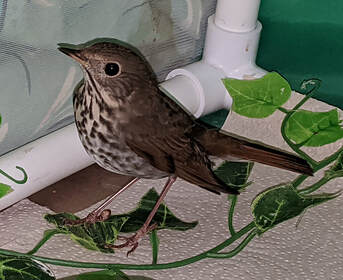JuJu News Hub
Your go-to source for the latest trends and insightful articles.
Feathered Friends and Fickle Hearts
Discover heartwarming tales of friendship, love, and the wild adventures of our feathered friends. Dive into the unexpected!
Understanding Avian Behavior: What Your Feathered Friends Are Trying to Tell You
Understanding avian behavior is crucial for bird enthusiasts who wish to connect more deeply with their feathered friends. Birds communicate through a variety of vocalizations and body language, each carrying specific meanings. For instance, a bird that is chirping energetically may be signaling happiness or the presence of food, while a low, soft cooing may indicate comfort or contentment. Observing these behaviors can help you understand what your birds need and how they feel. For further reading on this subject, check out this resource from the Cornell Lab of Ornithology.
Additionally, changes in avian behavior can offer vital clues about a bird's health or well-being. If a typically sociable bird suddenly becomes withdrawn, it could be a sign of stress or illness. Recognizing these shifts can empower you as a caretaker, enabling you to take appropriate action for their well-being. To learn more about behavioral signs that may indicate health issues in birds, visit this insightful article on PetMD.

The Emotional Bonds We Share with Our Pets: Why Birds Make Great Companions
The emotional bonds we share with our pets are profound and transformative. Birds, in particular, make great companions due to their unique personalities, intelligence, and social nature. Unlike some other pets, birds can form strong emotional connections with their owners, often mimicking speech and sounds that enhance their interactions. This ability to communicate creates an unparalleled bond, allowing owners to feel an even deeper connection with their feathered friends. For those interested in understanding the psychological benefits of pet ownership, resources like the American Psychological Association highlight numerous advantages of these relationships.
Having a bird as a companion brings joy and companionship that is both unique and fulfilling. Species such as parakeets and cockatiels are known for their playful behaviors and affectionate natures. Engaging with a bird can significantly improve mental well-being, reducing feelings of loneliness and depression. Many owners report feeling a sense of purpose and responsibility that comes from caring for another living being. Furthermore, studies show that pets, including birds, can boost happiness and lower stress levels; for more insights, check out the Healthline website, where you can learn how pets positively impact our mental health.
Caring for Your Feathered Friends: Essential Tips for a Happy and Healthy Home
Caring for your feathered friends is vital for ensuring they thrive in your home. Birds require a stimulating environment that fosters their physical and mental well-being. Here are some essential tips to consider:
- Provide Proper Nutrition: Offer a balanced diet that includes seeds, pellets, fruits, and vegetables. Consider consulting resources like AVMA's bird care guidelines.
- Maintain Cleanliness: Regularly clean cages and play areas to prevent the buildup of harmful bacteria.
- Social Interaction: Spend quality time with your birds. Many species thrive on companionship, both human and avian.
Creating a comfortable habitat is also crucial for your birds' happiness. Enrichment is key; ensure they have plenty of toys and perches to explore. Additionally, consider the following:
- Safe Environment: Keep hazardous items like toxic plants and small objects out of reach. Utilize guidance from The Humane Society for more information.
- Regular Vet Check-ups: Schedule periodic visits to an avian vet to catch any potential health issues early on.